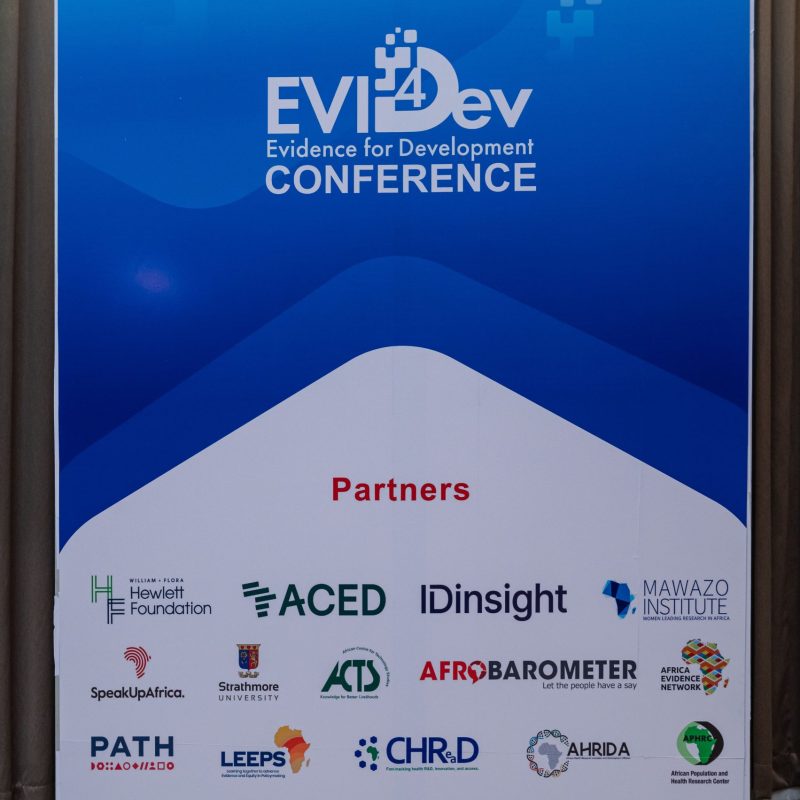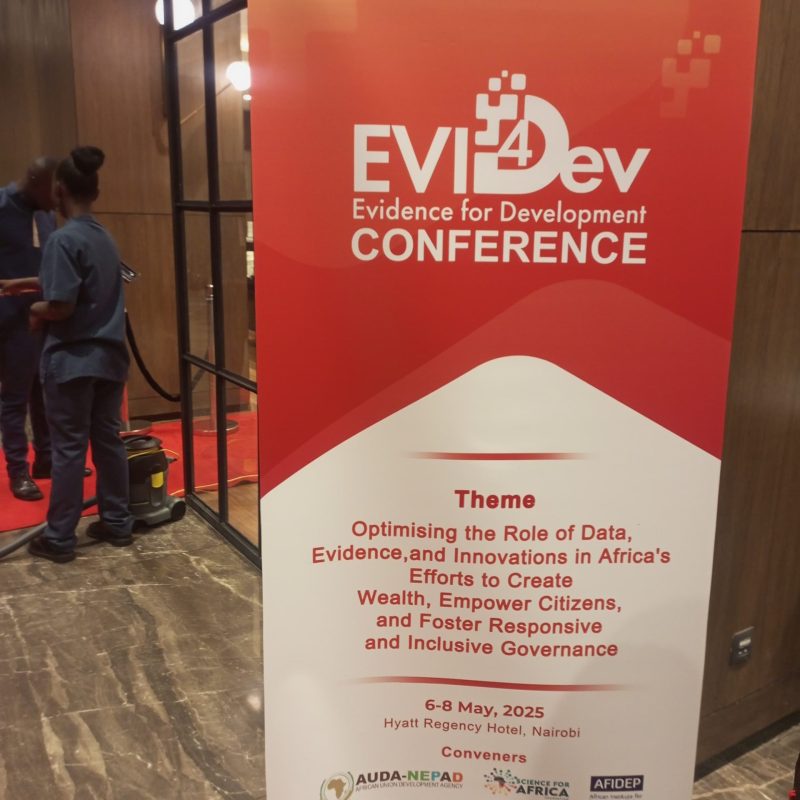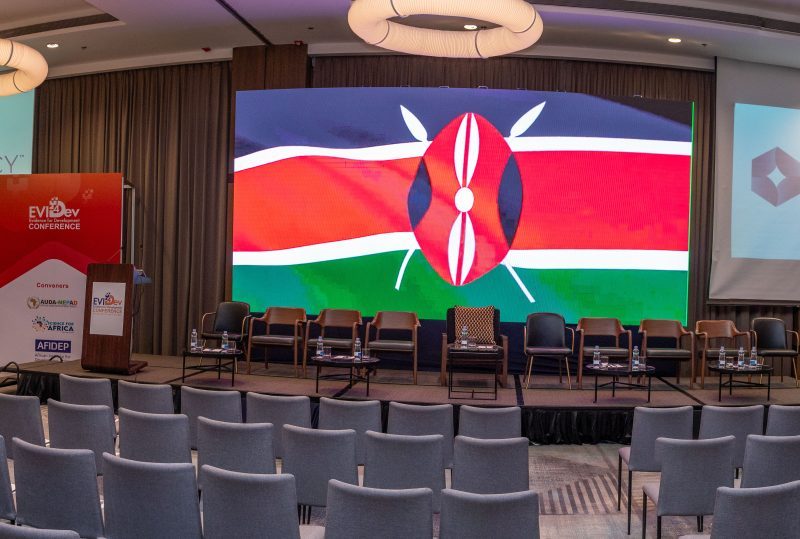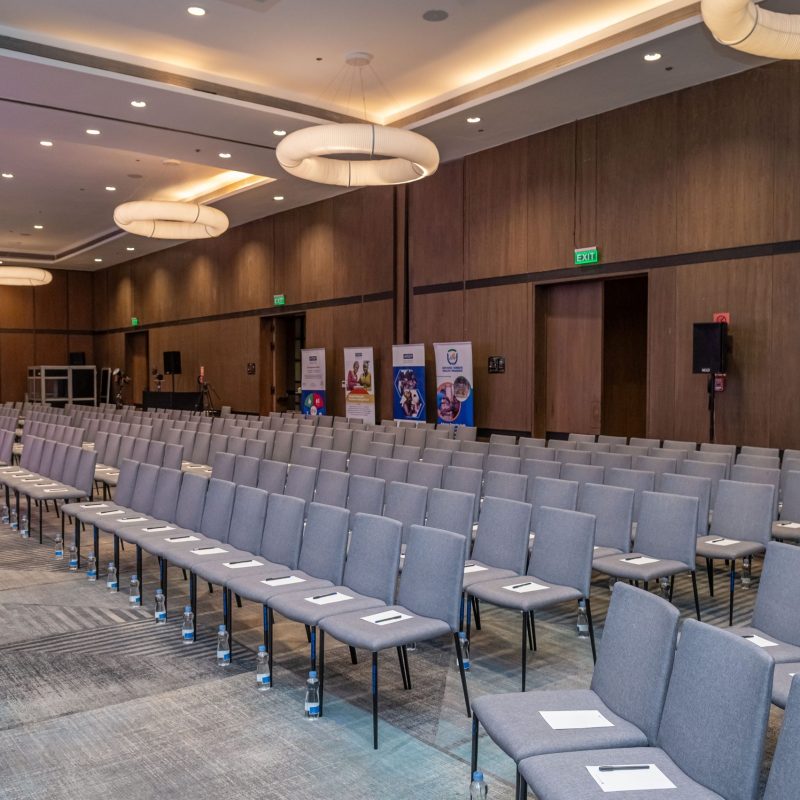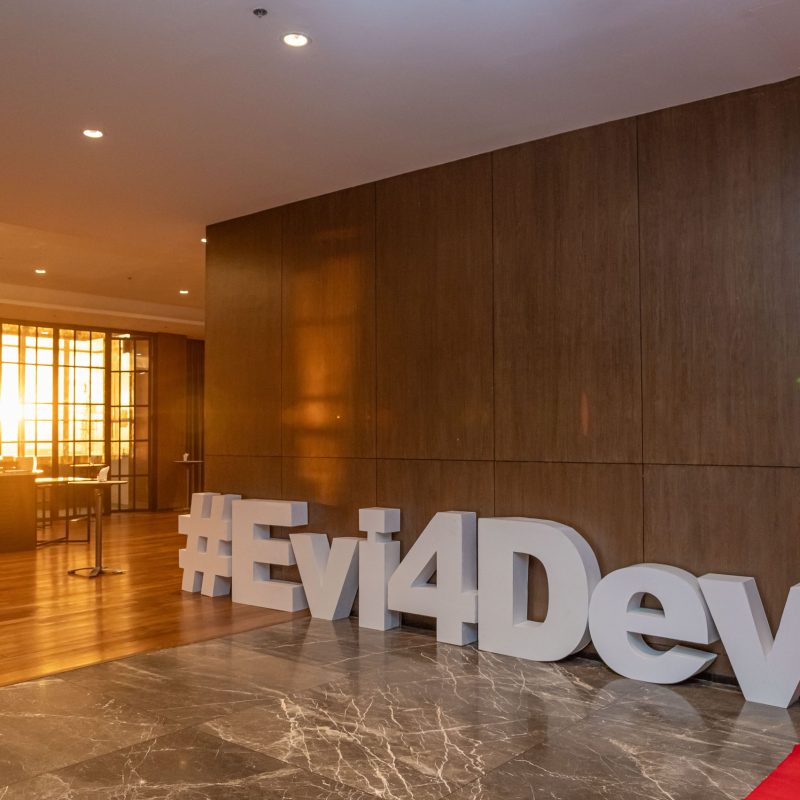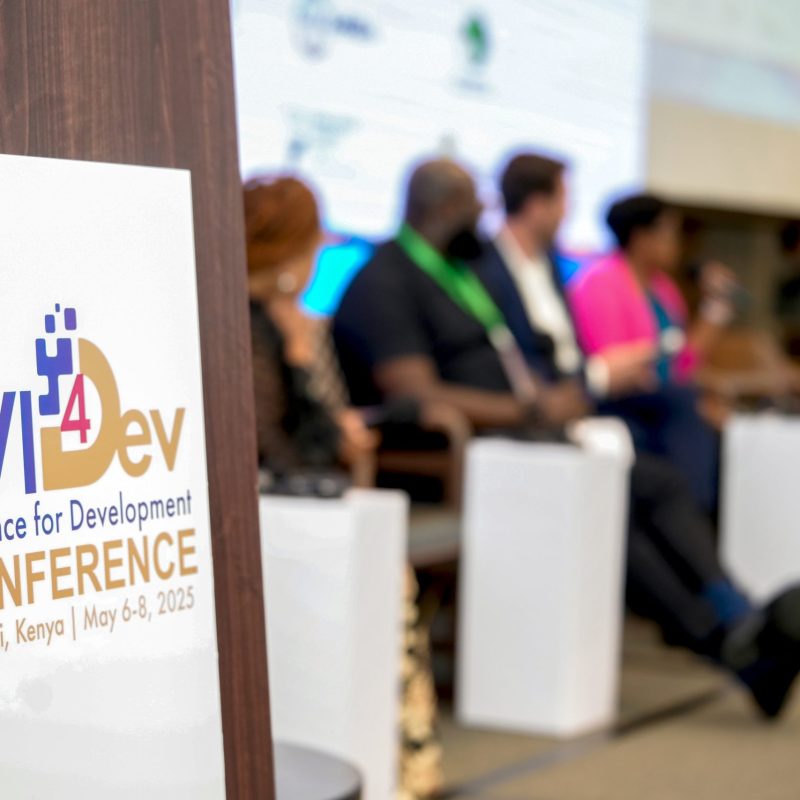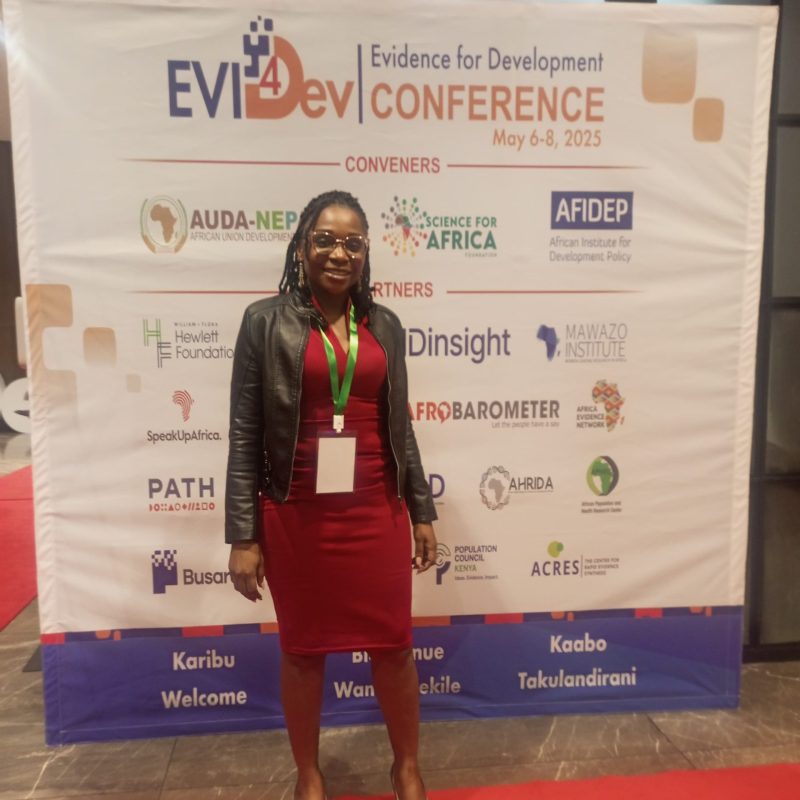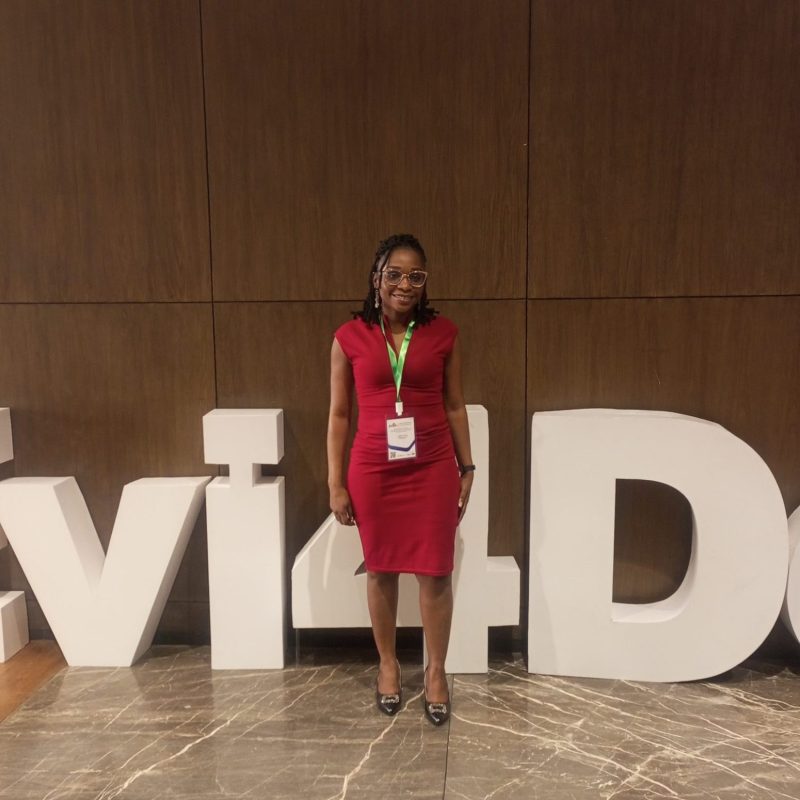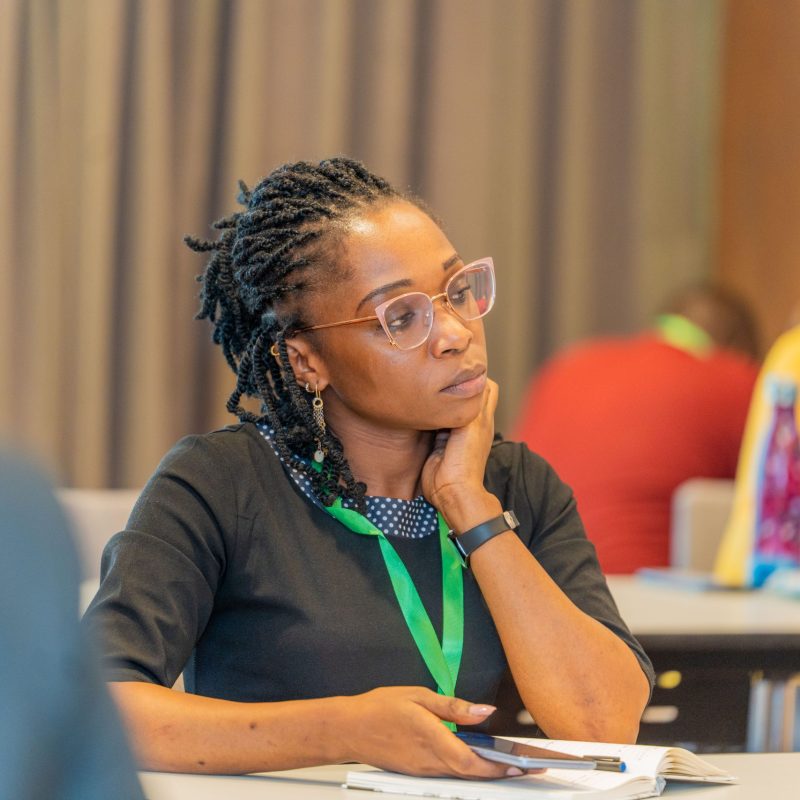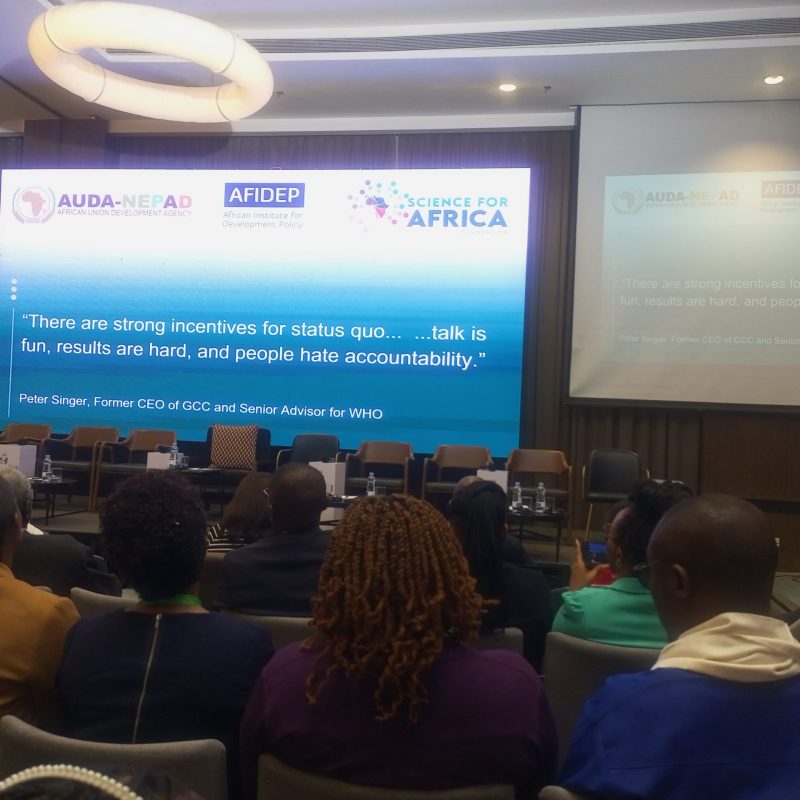
Evi4Dev conference insights by Maureen Ambasa Wanyama
I stepped into the Hyatt Regency Nairobi’s grand foyer on May 6th, 2025, and was immediately struck by the energy. Delegates from over 25 countries across Africa and beyond. Government ministers, regional STI leaders, private-sector innovators, NGOs, scientists, and youth changemakers mingled under the glow of the conference banner. The promise of three days dedicated to harnessing data, evidence, and innovation for Africa’s Agenda 2063 felt electric in the air. Knowing I was among those shaping Africa’s evidence-driven future made that first moment feel both inspiring and momentous.
When the conference kicked off framed by the conference’s overarching theme, “Optimizing the role of data, evidence, and innovations in Africa’s efforts to create wealth, empower citizens, and foster responsive governance” it became clear that each of the three days would tackle a specific angle:
- Day 1: Generation & translation of scientific research and innovations for the realization of Agenda 2063.
- Day 2: Strengthening evidence-informed policymaking in Africa for the realization of Agenda 2063.
- Day 3: Science, technology & innovation (STI) governance- Domestications of the STI Strategy for Africa(STISA) 2034.
What I took home
Over the 3-day programme, sessions moved in a deliberate arc, from how Africa generates and packages evidence, through the mechanics of turning that evidence into live policy and financing decisions, to the governance and long-term funding required for STISA 2034. The conversations left me with these concrete lessons:
- Purpose-first data: Delegates urged researchers, CSOs and the private sector to partner with policy makers and communities so that every study or dashboard answers a live development question and feeds directly into decision-making. Also generation of high-quality data alone won’t change outcomes; we must deliberately build a culture where using evidence is routine, expected and rewarded at every decision point.
- Lock STISA 2034 into national planning and integrating indigenous knowledge: The session urged African governments, academia, industry, civil society, researchers and development partners to weave the STISA 2024-2034 blueprint directly into national plans and Agenda 2063. Participants emphasized that high-quality evidence reaches policy only when researchers master science diplomacy and clear communication of research findings to policy makers , intentionally engage technical staff in ministries, and embed indigenous knowledge in innovation pipelines, so science drives inclusive development across the continent. Credible research starts with local investigators and traditional knowledge systems, ensuring findings make cultural sense and earn community trust.
- Treat AI as a development accelerant, not a buzzword: Governments should craft clear governance frameworks, invest in AI literacy, and integrate digital tools into routine surveillance and service delivery, as AI and digital tools were backed by robust evidence as enablers of Agenda 2063.
- Make citizen evidence routine: The plenary stressed that closing the gap between government delivery and citizen expectations is essential for Agenda 2063, urging deeper, youth-inclusive participation powered by digital platforms, local media, and clear, accessible information. Speakers called for early civic education, stronger feedback loops, removal of bureaucratic barriers, and context-sensitive tools like scorecards and citizen assemblies to make engagement meaningful rather than symbolic.
- Mobilise home-grown money: Ear-marked taxes, public-private partnerships and tighter public-financial-management systems were pitched as realistic levers to replace shrinking donor budgets and cut wastage.
- Support youth-led innovation: The conference spotlighted youth as vital catalysts for science, technology and evidence-informed policymaking, insisting their innovation and full participation be woven into Africa’s Agenda 2063. Speakers urged governments, industry, academia and implementers to overhaul youth policies and training, fund innovation hubs, open up youth-focused research, and involve young people at every stage, from data collection to policy execution.
- Expand the health research lens: With fewer than 3 % of global trials run in Africa, the continent needs a rapid scale-up of its own studies. Governments can speed this by raising health spending toward the Abuja 15 % goal and use health taxes or impact bonds to fund locally led research on priorities such as mental health, neurodiversity, pre-eclampsia and postpartum haemorrhage
These insights crystalise a single message: Africa already knows what to do and why, the gap is in acting quickly, together, and at scale.
A call to action
Walking out of the Hyatt on the final evening, still hearing Peter Singer’s warning that “talk is fun, results are hard, and people hate accountability”, I felt both urgency and optimism. It is easy to enjoy conferences and draft visionary slide decks, but the real work starts when we step outside the ballroom and hold ourselves accountable for results. Singer’s words perfectly capture the gap between inspiration and implementation. Conversations with ministers, youth system developers, seasoned researchers, and community advocates showed me my role isn’t just to analyse data but it’s also to convene these diverse voices and channel their insights into decisions that stick. So hold me to this: I will sharpen my data-storytelling, co-design every study with policymakers and communities, weave mental-health and culturally rooted care into each brief, translate findings into plain policy language, and stay shoulder-to-shoulder with government technicians until evidence becomes measurable action. Africa doesn’t lack ideas, only sustained investment and ruthless follow-through.


